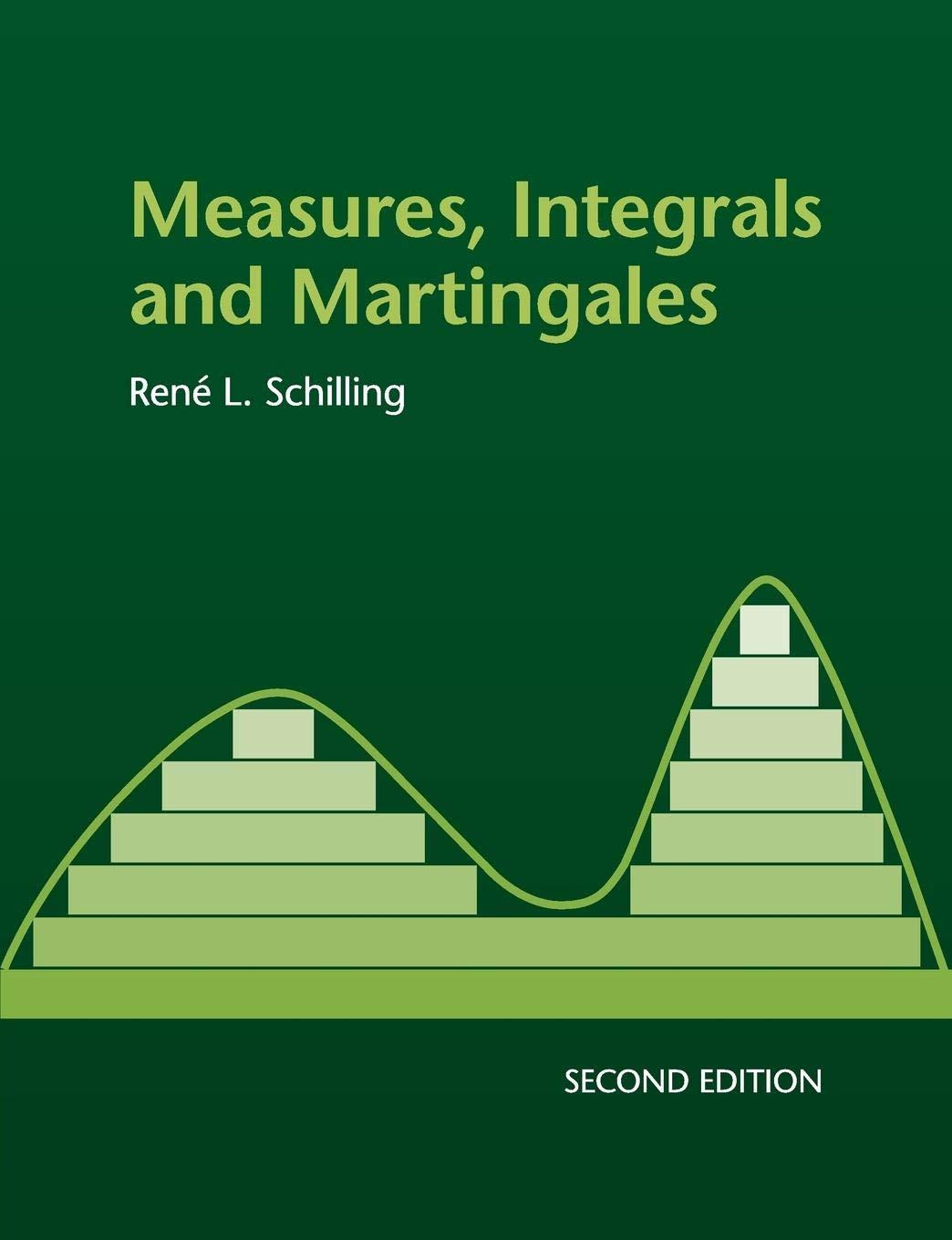Let ((X, mathscr{A}, mu)) be a (sigma)-finite measure space and let (u in mathcal{M}^{+}(mathscr{A})) be a ([0,
Question:
Let \((X, \mathscr{A}, \mu)\) be a \(\sigma\)-finite measure space and let \(u \in \mathcal{M}^{+}(\mathscr{A})\) be a \([0, \infty]\)-valued measurable function. Show that the set
\[Y:=\{y \in \mathbb{R}: \mu\{x: u(x)=y\} eq 0\} \subset \mathbb{R}\]
is countable.
[ assume that \(u \in \mathcal{L}_{+}^{1}(\mu)\). Set \(Y_{\epsilon, \eta}:=\{y>\eta: \mu\{u=y\}>\epsilon\}\) and observe that for \(t_{1}, \ldots, t_{N} \in Y_{\epsilon, \eta}\) we have \(N \epsilon \eta \leqslant \sum_{n=1}^{N} t_{n} \mu\left\{u=t_{n}ight\} \leqslant \int u d \mu\). Thus \(Y_{\epsilon, \eta}\) is a finite set, and \(Y=\bigcup_{k, n \in \mathbb{N}} Y_{\frac{1}{n}, \frac{1}{k}}\) is countable. If \(u\) is not integrable, consider \((u \wedge m) \mathbb{1}_{A_{m}}, m \in \mathbb{N}\), where \(A_{m} \uparrow X\) is an exhaustion.]
Step by Step Answer:






